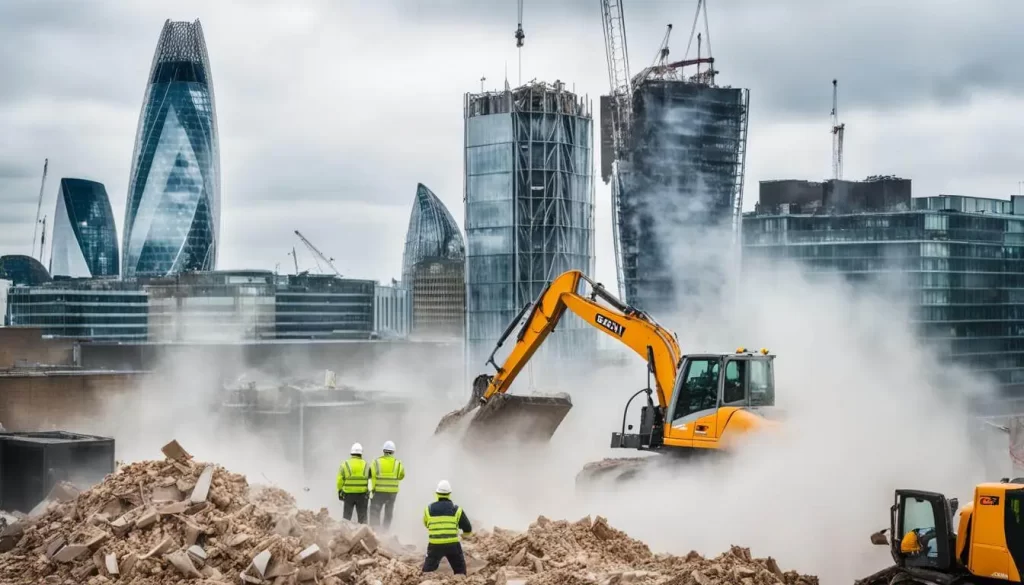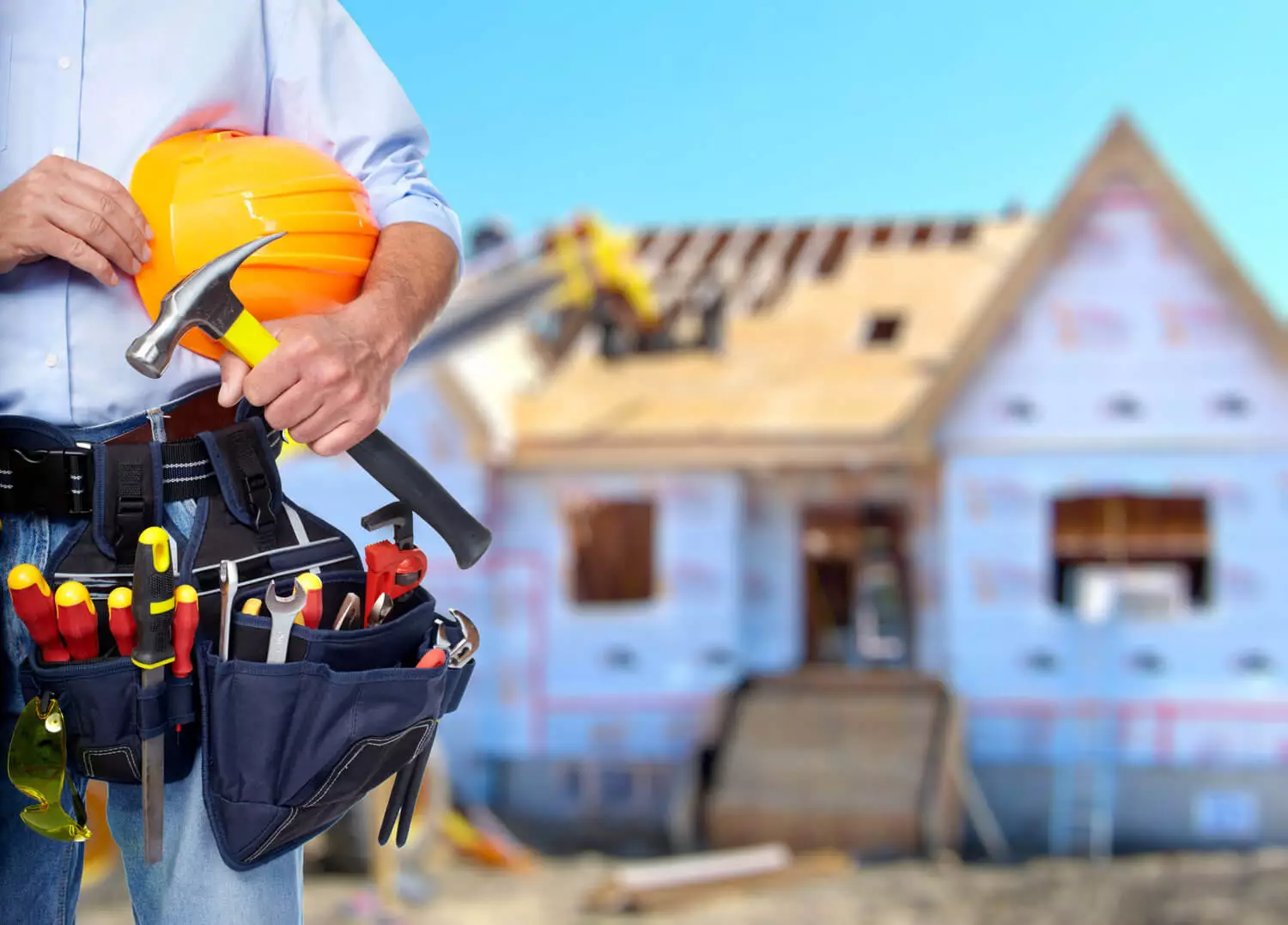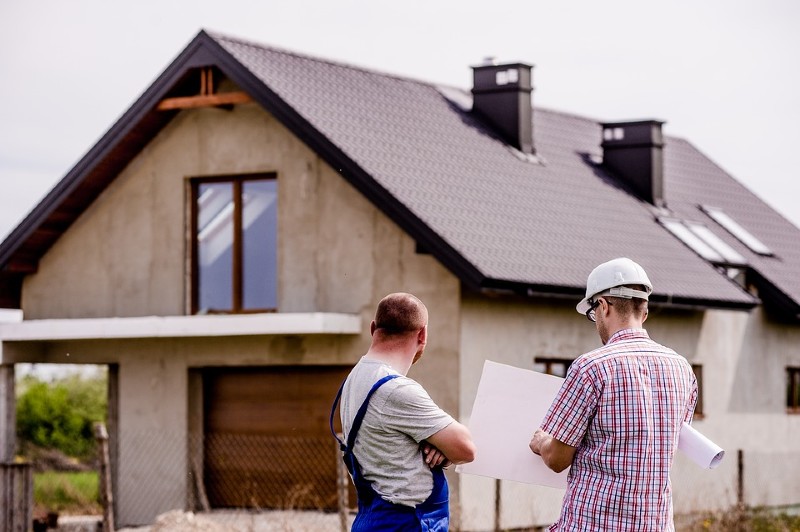If you’re planning a construction project in London, understanding the timeline for demolition is essential. Whether it’s a residential knockdown or clearing a commercial site, the time it takes to complete a demolition depends on various factors. As experienced London demolition contractors, we’re here to break down what influences demolition timelines in the city, so you know what to expect when embarking on your project.

Content
Factors Affecting Demolition Timelines in London
Type of Structure
- Residential Demolition: Smaller structures like homes typically take less time to demolish. For a single-family residence, the demolition phase alone can often be completed within a few days to a week.
- Commercial Demolition: Larger structures such as offices, factories, or warehouses require additional time and expertise. These projects often include complex elements like reinforced concrete and steel frameworks, which require specialized equipment and add to the duration.
- Interior Demolition: If you’re planning an interior renovation and only need a strip-out, this process can often be completed quickly, typically within a few days, depending on the building’s layout and size.
Permits and Regulations
- London is known for its strict building and environmental regulations. Securing necessary permits and planning permissions can add several weeks or even months to a project timeline. Working with reputable London demolition contractors can expedite the process, as they will typically have experience navigating London’s regulatory landscape and securing necessary approvals efficiently.
Site Preparation and Safety Protocols
- Before any demolition can start, the site needs to be assessed, cleared, and prepared. This includes conducting environmental impact assessments, asbestos removal if required, and disconnecting utilities such as water, gas, and electricity. Safety is paramount, especially in densely populated areas like London. All of these preparations are crucial but add time to the overall project.
Size and Complexity of the Project
- Larger projects require more equipment, workforce, and specialized techniques, especially if the building has deep foundations, multiple stories, or is constructed with materials that require careful handling. Complexity factors such as proximity to other structures and the level of structural reinforcement impact how long the demolition will take.
Waste Removal and Site Clearance
- The disposal of debris and waste is an integral part of any demolition project. For environmental reasons, London requires proper disposal, recycling, or repurposing of waste materials, which can add time if large volumes of materials are involved. Site clearance is usually the final step in a demolition project, ensuring the site is ready for its next phase.
Environmental Considerations
- London’s sustainability guidelines require contractors to recycle materials where possible and minimize environmental impact. Eco-friendly practices, while essential, can extend the duration of the demolition, as materials are carefully sorted and transported to specialized recycling facilities.
Typical Timelines for Demolition in London
Based on our experience, here is a general overview of how long different types of demolition projects might take:
- Residential Buildings: 1-2 weeks (including prep and clearance)
- Commercial Structures: 3-8 weeks, depending on size and complexity
- Interior Demolition/Strip-Outs: A few days to 1 week
- Large Industrial Sites: 2-4 months, or more for highly complex structures
Every project is unique, so timelines can vary. Consulting with seasoned London demolition contractors early in your planning phase will help establish a realistic schedule for your specific needs.
How to Keep Your Demolition Project on Track
To keep your project on schedule, here are some essential tips:
Choose the Right Demolition Contractor
- Partnering with reputable London demolition contractors can make all the difference. Look for companies with local experience, as they will understand London’s regulations, timelines, and site conditions. A reliable contractor will also be transparent about potential delays and offer solutions.
Start Planning Early
- With factors like permits and environmental considerations, beginning your planning and paperwork as early as possible can save valuable time. Discuss timelines with your contractor to identify any potential roadblocks ahead of time.
Regular Communication
- Staying in touch with your demolition team is vital. Make sure to have regular updates on the project’s progress, and address any questions or concerns promptly to avoid unforeseen delays.
Opt for Sustainable Disposal Practices
- London’s emphasis on sustainability is non-negotiable, so ensuring your contractor is prepared for proper waste disposal will prevent penalties and keep your project on track.
Account for Weather Conditions
- While many demolition projects can proceed in adverse weather, extreme conditions can delay timelines. Keep this in mind, especially for projects scheduled during London’s wetter months.
Trust Experienced London Demolition Contractors
Demolition projects in London require careful planning, strict adherence to regulations, and effective site management. At every step, it’s essential to work with experienced professionals who understand the local landscape. A skilled contractor will not only help streamline your project but will also provide guidance on timelines, cost-effective methods, and regulatory requirements.
Hiring professional London demolition contractors is the best way to ensure your project is completed safely, on time, and within budget. Demolition timelines may vary, but with the right team, you can navigate the complexities of the process seamlessly, making way for your project’s future developments.
Whether it’s a small residential building or a large-scale commercial site, London’s expert demolition contractors are ready to bring your vision to life, starting with a clean slate.

Melissa Day is a dedicated home blogger who has been blogging for over six years. She covers everything home related. Melissa also loves writing posts about her travels to Europe with her husband and two children.












